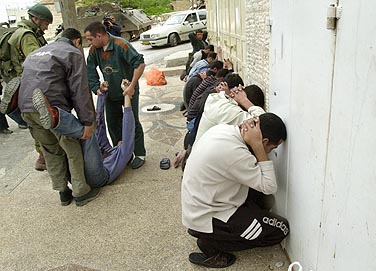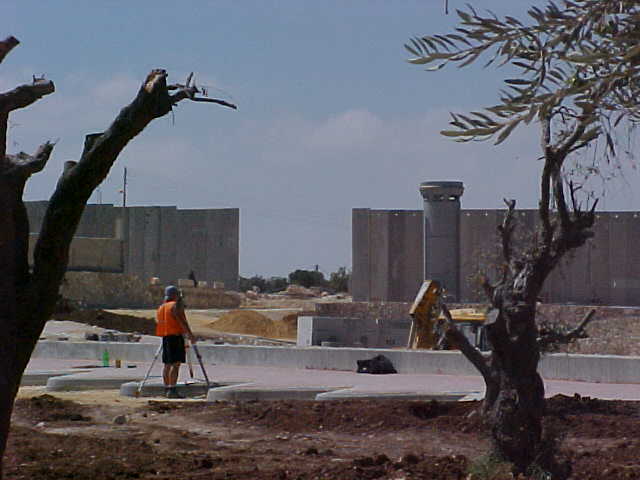Sometimes I imagine what peace would look like in Israel and Palestine. I close my eyes and I believe that either grassroots activities or even the government might bring it about. And then I open my eyes and look around: the rubble of demolished houses against the backdrop of green lawns in illegal settlements, the beautifully paved settler by-pass roads contrasting the desperate situation in Gaza where there isn’t food, water, or medicine enough.
I recently met with an Israeli ministry official to get a briefing on the conflict. While I am convinced that we must and really can understand the situation in Israel and Palestine, I recognize that there are complexities and varying perspectives / narratives that must be thought through. I understand that even facts and history are disputable. In the period of an hour, I ingested so much bullshit that I’m still not able to really process the experience. I’m going to focus on one topic he touched on: settlements and home demolitions.
This ministry official used a map that a person in our group had—a generic map we bought at a gas station so we could drive around Israel—to show us where the Green Line is. The Green Line was drawn by the UN in 1949 to essentially delineate Palestine from Israel, that is, to sketch out the West Bank and the Gaza Strip. The West Bank is often not distinguished but rather incorporated into Israel as Israel on most of the maps I picked up in Israel. The West Bank is essentially erased. On the map the ministry official used (again, our map) there was a dashed green line, yet the official traced The Green Line with his finger two to three inches inside the line drawn, and when the area of the West Bank is only five to seven inches wide on the map, he is cutting the area down to nearly nothing. Now, perhaps you will think he was just ignorant, but I will tell you that this man’s job is to know and speak about Palestine. Furthermore, the Green Line was there, so why redraw it with your finger? Later he tried to spot a few major Palestinian cities and Israeli settlements on the map, and he pointed to where he thought it was (after scanning the map for up to a minute), yet his geography was only on target once. Whether he was intentionally shrinking the West Bank or just ignorant (as seemed to be the case with pointing out major Palestinian cities) is irrelevant. This is a man representing the government, and either scenario is scary.
When asked about the peace process and Israel’s role in working towards peace, the ministry official was specifically asked to respond to settlements and Israel’s refusal to freeze expansion while simultaneously promising such a freeze during Annapolis. His response was “What about Palestinian settlements?” This may seem strange, so let me explain because it took me a few minutes to understand the question…and I was there.
“Settlements” are illegally (according to the UN) constructed communities for Israeli Jewish populations, which Israel builds (and I’ll say more about this) in the West Bank (formerly in Gaza as well, and also still in the Golan Heights). While they are constructed with non government money, the land on which they are built is Palestinian land that is often confiscated by the Israeli government. The Israeli government also offers considerable incentives for Jewish Israelis to move to the settlements. Their construction creates irreversible facts on the ground, not towards “Judaizing” Palestine, but also in terms of damage—environmental, economical, psychological, etc.—on Palestinian individuals and communities. Settlements are not only Jewish-only communities constructed on occupied land (an illegal act in itself) but they also bring with them Israeli government constructed by-pass roads which connect settlements and provide them access to Israel. These roads are illegal as well; additionally, they are racially exclusive and astoundingly destructive to Palestinian livelihoods. Between settlements and by-pass roads, the West Bank is hacked into enclaves that are divided from one another and sometimes within a single town. Settlements are illegal and terribly, terribly harmful to Palestine, and to any promise of peace.
So, what did this official mean by “Palestinians building settlements”? He followed up this question by stating that Palestinians are building illegally all the time, so why don’t we understand that this is a problem to peace also. Palestinians are required by the occupation authorities to petition the Israeli military for permission to do any construction at all. Not only does this cost money, but it costs time. And most Palestinians are denied the permits to build. Much of their land, and construction on it, is deemed a security threat to Israel. Thus, Palestinians have two choices…don’t build (which means don’t marry and have a family in this culture) or build on your own land without military permission at the risk of demolition. The ministry official classified all Palestinian building which is taking place on one’s own private land, all construction which was not there before 1967, as “Palestinian settlements.” He is able to do this by challenging the individual Palestinian’s claim to his own land with the argument that at one point historically it may have been Jewish land. Thus, Palestinians have been “settling” Jewish land for thousands of years. And thus, the Israeli government has a god given right to destroy any Palestinian house it does not approve of and a god given right to build Jewish only housing, against international law.
The real settler is the Palestinian. Now, we can argue about who is indigenous or who has a historical “right” to the land. But at the end of the day, I think the UN offers a useful and internationally legitimized standard for us. And using that, Israel is occupying Palestine in the West Bank and Gaza Strip and the creating of facts on the ground, including the transferring of its civilian population, is illegal.
Subscribe to:
Post Comments (Atom)








2 comments:
Well, of course I am telling you what you already know, but currently the green line has no status in international law. The Partition Plan is still in effect and legally binding.
Plus, who cares that he doesn't know the green line. Actually, since a one-state solution poses the best prospects for true and comprehensive peace, it might actually be best that he doesn't know the green line.
And for that matter, the settlements might be in everyone's longer-term best interests. As long as you make them racially inclusive, they could provide much needed housing for Palestinians.
I was thoroughly disgusted by this concept of "Palestinian settlements." Such perversion of fact and language is the all-too-typical norm of Jews who are also Zionists. They can always parse the construction of sentences to their advantage or take opportunistic advantage of a less-than-100-percent-precise syntax[hang the intention, hang the accompanying notes, hang the weight of international law, standards, and mores] (e.g., the infamous "missing" "the" in UNSC Res. 242: "...all [the] settlements")
I've come not to expect with fear and empathy the coming blowback on Zionists, including by association all Jews. The blowback is nearing, and they will deserve that blowback in even the most heinous forms...because the Jews of classic, principled Judaism could have done something to prevent it but did not do anything. As one sows, so shall one reap....
Post a Comment